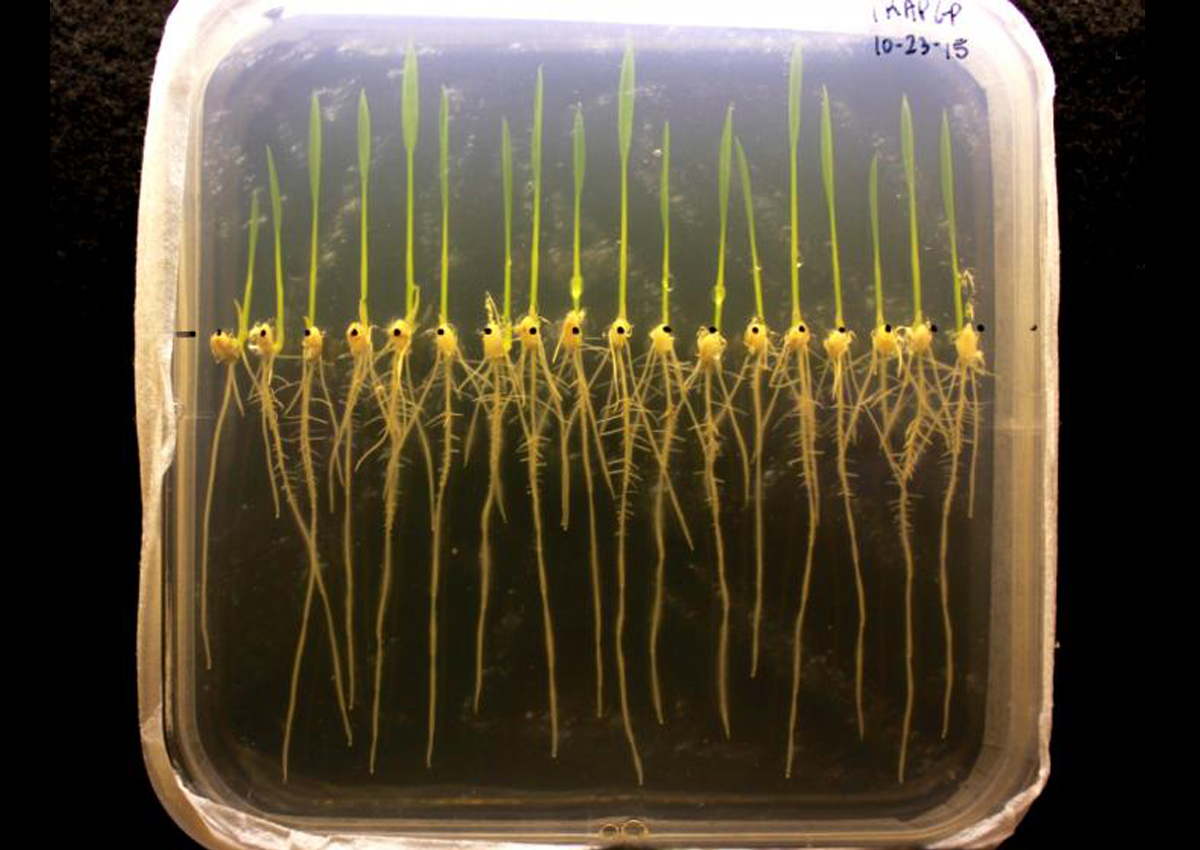
Study Opens Door to Flood Resistant Crops
September 25, 2019| |
Of all the major food crops, rice is the only crop that can survive flooding. A new research conducted by scientists at the University of California Riverside (UC Riverside) could soon change this as some of the genes involved in adaptation in rice also exist in other plants. The scientists found that a wild-growing tomato, a tomato for farming, and a plant similar to alfalfa share at least 68 gene families that are activated as a response to flooding. The UC Riverside team hopes to use the knowledge about rice in activating the genes in other plants to help them survive waterlogging.
The research team led by UC Riverside professor of genetics Julia Bailey-Serres examined cells located at the roots' tips as roots are the first responders to flood. Root tips and shoot buds are also where the plant's prime growing potential resides. These two regions contain cells that can help a plant become more resilient to flooding.
The genes involved in flooding adaptations are called submergence up-regulated families (SURFs). While UC Riverside researchers performed flooding experiments and analysis of rice plant genomes, their colleagues at UC Davis did the same with the tomato species while the alfalfa-type plant work was done at Emory University. They found that SURFs were activated in all the plants during flooding experiments, but their genetic responses were not as effective as in rice. The group now plans to conduct additional studies to improve survival rates of the plants that currently die and rot from excess water.
For more details, read the article in UC Riverside News.
| |
You might also like:
- Utrecht Biologists Discover A Way to Make Plants Flood Tolerant
- Scientists Discover Gene that Confers Flood Tolerance, Drought Tolerance, and Disease Resistance in Rice
- International Research Team Discovers Genetic Mechanism that Allows Rice to Survive Flooding
Biotech Updates is a weekly newsletter of ISAAA, a not-for-profit organization. It is distributed for free to over 22,000 subscribers worldwide to inform them about the key developments in biosciences, especially in biotechnology. Your support will help us in our mission to feed the world with knowledge. You can help by donating as little as $10.
-
See more articles:
-
News from Around the World
- Nigeria Stresses Importance of Biotechnology for Food Security
- Study Opens Door to Flood Resistant Crops
- Scientists Discover Way to Make Crops Grow in Salty Soils
- Adoption of GE Corn, Cotton, and Soybeans in the U.S. Close to Saturation, USDA-ERS Reports
- Biologists Identify Six Genes in Maize Responsible for Production of Plant Antibiotics
- Safety Assessment of GM Crops Completed in Korea
- Bt Brinjal Technology Boosts Yield, Reduces Pesticides in Bangladesh, IFPRI Reports
- Most Complete Potato Genome Sequence Published
-
Research Highlights
- Analysis of Expression Profiles of Nuclear Factor-Y Genes in Cassava
- Hydrophobic Forces, Not H-Bonds, Bind DNA Together
-
Plant
- Engineering Broad-Spectrum Bacterial Blight Resistance in Rice Using CRISPR-Cas9
- Scientists Use CRISPR to Develop Apples Resistant to Fire Blight
-
Read the latest: - Biotech Updates (December 17, 2025)
- Gene Editing Supplement (December 17, 2025)
- Gene Drive Supplement (February 22, 2023)
-
Subscribe to BU: - Share
- Tweet

